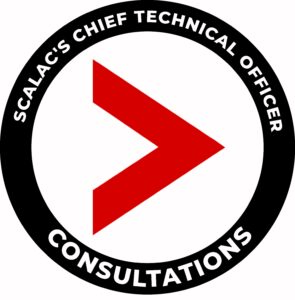
Agile team structure – How to effectively lead your team?

Behind every successful project, there is an exceptional team. Whether there’s a complex technical issue to take care of or a new product project, nothing can give you better results than a high-performing and motivated team.
But such teams don’t just “happen” – they need to be built and taken care of by equally talented managers. And their job is definitely nothing as easy as just rounding people in one place, discussing the needs, and then delegating the tasks.
To handle all the responsibilities and challenges of the manager’s position and keep the work going smoothly, there are some key skills all seasoned and aspiring managers need to have. Which ones?
We’ll take a closer look at the most important team-management skills every leader should master in a moment. But first, let’s talk about why do companies even care about proper team management.
What is team management and agile team structure?
One definition you can find online says that team management refers to “techniques, methods and activities needed to manage and coordinate a group of individuals to perform a particular task. Team management includes communication management, teamwork, goal setting, performance management, and more. It also includes dealing with conflicts within the group.
As those teams can be made out of people from the same department or from completely different areas, each one needs a manager who is able to successfully lead them to achieve their goal. Who is a team manager?
It’s a person who is responsible for the day-to-day activities of their team and makes sure that the work goes smoothly. Among their many daily tasks, they are setting goals, adding guidelines, assisting with any issues the employees might have, and resolving conflicts inside the team.
Another important part of the job is to give their team members various opportunities to build on their strengths and improve their weaknesses (for example, via a regular feedback session) and make the whole team bond together.
What do they need to succeed at their job? First, team managers need strong leadership skills to be able to give clear direction and support to the people working under them. Team leaders must also have advanced communication skills, so they can discuss complex ideas and defuse stressful situations. Having the ability to think on their feet is also important, as business environments can change rapidly.
The importance of good team management and the agile team structure
At the start, it might feel difficult to manage all those different personalities, working styles, and skills. The differences between team members can be especially visible if you work with larger teams made of different groups or if part of your team works remotely.

As the team leader, you act as a “glue” that brings those individuals or groups together and inspires them to achieve more together, rather than separately. Benefits? Boosted teamwork, morale, and productivity is just the start:
- Working together helps coworkers to share ideas, knowledge and skills they have
- Emphasizes good communication skills and active listening
- Allows team managers to solve problems and conflicts before they affect the project’s progress
- Ensures both managers and team members are working toward a clearly defined common goal
- Helps managers clearly outline the roles and expectations for all team members based on the skills each worker can bring
- Keeps the information easily available to everyone so no one feels left behind
But most importantly, excellent team management can simply make your employees happier, as they can see the results of their hard work and learn new skills from other coworkers.
Once your team feels completely at ease when working together, they might slowly turn into self-organized teams where you might only need to determine the general direction of a project or task. Everything else (from planning and assigning tasks to carry them out) can be left to your team to decide themselves.
Then, they will only contact you to ask about project updates or to inform you about problems they might be having – like needing more resources.
What are the challenges team managers often face?
The satisfaction of watching your team grow closer with each completed project is something incredible. But before it comes to that, you’ll have a number of challenges and difficult situations to face. The biggest one? Building trust among coworkers.
When people who barely know each other are asked to work together suddenly, it’s pretty likely that they won’t trust each other fully. Rather, they will prefer to keep things to themselves – and as a result, you have to take care of:
- Various communications issues
- Tensions and conflicts between team members
- Low engagement and poor teamwork
- Lack of focus on the end goals
To improve the situation and the morale of your team, you need to focus on building relationships and strengthening the bonds between your coworkers. It might take some time though – while some colleagues will become friends instantly, others might need far more time and (your support) before they can trust each other fully and work as a part of the team.
With remote work though, it might be a bit more tricky to keep your team working smoothly. As your team communicates through online messages rather than face-to-face and are isolated from one another, then misunderstandings might be unavoidable.
Fortunately, modern technology gives team managers plenty of ways in which they can keep an eye on their remote team. From video conferencing tools to holding online meetings to project management apps with which you can monitor how the project is moving along and even fun team exercises – the options are virtually endless.
What skills do you need to effectively lead your team?
A team lead is responsible for coordinating the team and ensuring that processes run smoothly. This is an essential part of the agile team structure. As useful as the various online tools might be, what really matters when it comes to rallying a team are the soft skills that all managers should have.
From the ability to communicate effectively, delegate tasks, and estimate them with the team member, to organization and empathy. All those team management skills are essential for anyone in a leadership position. Let’s have a look at the most important ones:
1. Communication
Communication issues happen every day, especially if the team members don’t know each other well or work away from each other. Here’s where you’ll be relying on your communication skills to clear any doubts or resolve conflicts.
Effective communication includes far more things though than just knowing how to give clear instructions to your coworkers. Listening actively, asking the right questions, and giving honest feedback are what you will need as well to get your message across to your team.
2. Organization skills.
Everyone works better when they’re working toward a clear goal and know which tasks should be done first. That’s why the ability to break down complex projects into smaller parts, set objectives and assign each task to the most qualified person is essential for all managers.
You’ll need to be good at organizing your and other coworkers’ work, especially when managing large-scale projects. Unless everyone knows exactly what their role is and has their tasks aligned with the ones of their fellow team members, the project might quickly turn into chaos.
Organization skills will also come in handy whenever something unexpected happens and your team gets sidetracked as with a clear schedule, they can quickly get back on track.
3. Emotional intelligence (EQ)
Emotional intelligence is defined as “having the ability to understand and manage your own emotions, as well as recognize and influence the emotions of those around you”.
What does it mean? You understand what you are feeling in a given situation, but you don’t allow them to affect your work and behavior. But besides knowing yourself, you can also catch on to the feelings and concerns of others and “put yourself into their shoes”.
Empathy for others’ thoughts and feelings and seeking the best solution when managing conflicts are all aspects of your emotional intelligence that you’ll need as a team manager. With those traits, you can build a healthy work environment where your team members can flourish and keep doing their best.
4. Delegation Skills, getting the job done
Try as you might, there’s a limited number of things you can do yourself. As you have numerous tasks to finish during the day, it’s crucial that you learn how you can effectively hand over some of the tasks to your team members to get the whole job done – and then, complete the project successfully.
If you’ll organize things well, then not only your own workload gets smaller. By handing tasks to other teammates, you are showing them that you trust them to get the job done or want them to learn new, useful skills. That way, you are boosting their confidence in their own skills and can quickly build a strong and successful team of people, eager to take on any challenges.
#Tracking tools and products for better team management
From our experience as a Scalac, there are a lot of lessons learned when it comes to team management (we would have to devote a separate article to this). But if most people in the company work remotely, you need the right tools to effectively manage a team.
Atlassian is an Australian software company that develops products for software developers, project managers, and other software development teams. One of them is Jira. It is written in Java and has an optimized, useful interface where every task and every project is kept on track and easy to manage. You can also plan with your team the daily schedule and see the progress – Jira will keep you on track by sending a notification about changes and progress, straight to your e-mail box.
THE FUN FACT: The product name is a truncation of Gojira, the Japanese word for Godzilla. The name originated from a nickname that Atlassian developers used to refer to Bugzilla (it was previously used internally for bug-tracking).
Jira is a proprietary tracking product written in Java. It has an optimized, useful interface where every task and every project is kept on track and easy to manage. To sum up: Jira helps implement agile project management – which is really cool.
5. Keeping the team on track
Motivating and supporting your team is one of the crucial yet tricky things you’ll need to learn. On one side, proper motivation can tremendously increase the employees’ productivity and job satisfaction – while reducing the risk of burnout.
What’s tricky here is to find out what exactly encourages each of the team members to do their best – and those vary from person to person.
6. Problem-Solving
No matter how well prepared they might be, every team will run into problems at some point – missed deadlines, unexpected technical issues, or a sudden conflict in the team. Then, it’s your responsibility to make sure that the matter is tackled quickly and effectively. Solving various challenges and obstacles standing in the way of completing a project by calmly analyzing the situation and suggesting an appropriate solution is something you will have to do often, so working on your analytical skills and keeping calm under pressure can go a long way.
Conclusion
While for some managers leading a team to success is easier than for others, no one is a “born leader” – it all comes from regular training. Feeling less than confident in your current abilities in these areas? Don’t worry – most of the skills can be learned and improved over time. Once you can confidently say that you have mastered those various team management skills, you will be fully equipped to manage different groups and projects and solve various problems as they come.
But more importantly, you’ll have a team where everyone is motivated to give their best and can share a helping hand to others as they need. With such a team, any project will be a breeze.












